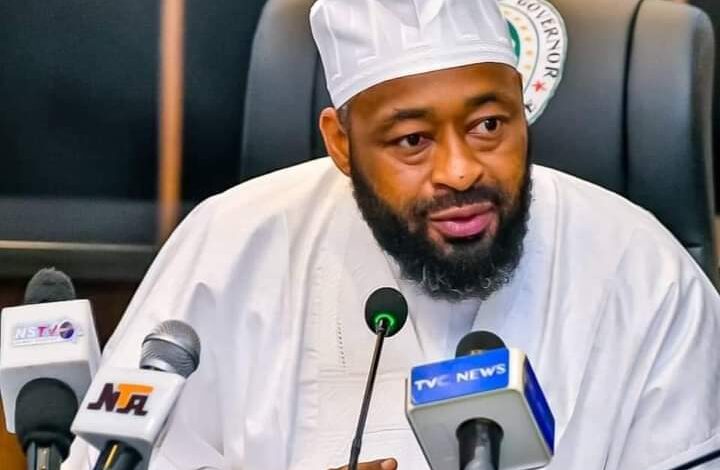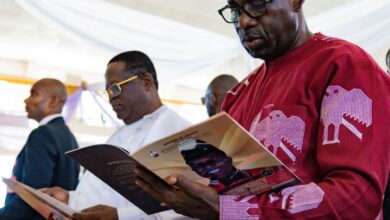Governor Bago’s dread for dreadlocks and executive rascality

By the time you are reading this, we would have had a good belly laugh, a few or more persons would have also been arrested, must have had their hair cut by overzealous security personnel. It is Nigeria, the deed done, we would have moved on to the next matter.
Minna, the capital of Niger State, faces genuine security challenges—thuggery, cultism, and drug-related crimes—that demand urgent action. However, Governor Umar Mohammed Bago’s Executive Order on Thuggery Activities (22/04/2025) responds to these issues with measures that flagrantly violate legal norms, human rights, and constitutional principles.
While the intent to restore order is understandable, the order’s provisions exemplify executive overreach, collective punishment, and a dangerous disregard for due process.


Let me quickly state that I am not a lawyer…and I am not sure that I need to be one to share my fact—based opinions.
The executive order’s most egregious clauses contravene Nigeria’s 1999 Constitution and international human rights standards:
Extrajudicial Killings and Collective Punishment (Clause 1): Declaring that individuals found with weapons (even sticks) should be “treated as armed robbers” and killed, with families charged for bullets, violates Section 33 of the Constitution, which guarantees the right to life.
It also imposes collective punishment, outlawed under international law. Such measures normalize state-sanctioned violence and erode public trust.
I don’t want to talk about the Criminalizing Appearance (Clause 2) is a profound testament to how our thoughts are wired.
Arresting citizens for dreadlocks—a cultural and religious symbol for many—infringes on personal liberty (Section 34) and freedom of expression (Section 39).
Targeting hairstyles is discriminatory and fuels marginalization, akin to past oppressive policies like Nigeria’s 1984 “War Against Indiscipline.” Which is why it did not succeed and it is not about to succeed now.
How about Property Rights and Due Process (Clause 6): Demolishing homes without court orders violates Section 44’s protection against compulsory property acquisition. Similarly, confiscating vehicles (Clause 10) bypasses judicial oversight, rendering the state both accuser and judge.
I can tell that on Curfews and Overreach (Clauses 3, 9): While curfews can be legitimate, blanket bans on Okada/Keke Napep without consultation disproportionately harm low-income workers. Centralizing “Operation Flush” under the governor politicizes security agencies, risking abuse.
And on the Erosion of Judicial Independence (Clause 7): Establishing “special courts” under the Chief Judge’s supervision risks undermining judicial impartiality, as expedited trials may compromise fair hearings (Section 36).
These clauses reflect a troubling trend: governance by decree, not law.
The order’s rationale—combating crime through fear—is both ineffective and unethical. History shows that heavy-handed tactics, like our not too far in the past SARS unit approach, exacerbates violence and alienation.
By equating sticks with firearms, the order dehumanizes youths, many of whom are victims of systemic neglect. Demolishing homes and arresting community leaders (Clauses 5–6) scapegoats the poor while ignoring elite enablers of crime.
Worse, it diverts attention from the government’s failure to address root causes: unemployment, poor education, and institutional corruption.
The absurdity of these measures recalls a tale of a lawyer who sold a well to a teacher, only to later insist the water wasn’t included. When the teacher threatened to charge rent for the water, the lawyer retreated, exposing the folly of such exploitative logic.
Governor Bago’s order mirrors this hypocrisy: it weaponizes legal technicalities to strip citizens of rights, much like the lawyer’s hollow claim over the well’s water.
But just as the teacher turned the tables, the people of Minna can—and must—challenge this overreach. The order’s contradictions reveal its fragility; collective resistance can force accountability, as the teacher’s wit did the lawyer’s greed.
Sustainable solutions require addressing socio-economic drivers of crime and restoring trust. Now my dear governor and brother…to my grouse. I have a dread and I am not a criminal—
I believe you could have resorted to Community Policing: Train officers to work with local leaders, youth groups, and NGOs to identify risks collaboratively. A better approach and initiative that can reduce crime through dialogue and intelligence-sharing.
How much has your government invested in vocational programs, public education, and job creation? For example, how many schemes are currently running to curb cultism by offering alternatives to crime.
Truth be told, I keep stating that strengthening existing courts to handle cases swiftly while ensuring fairness is better than Mobile courts and improved legal aid services can improve access to justice without sacrificing rights.
At the heart of these increased crime rates is the drug menace, I dare say, replacing punitive drug policies with health-focused approaches. Partnerships with NGOs can provide counseling and reintegration support.
At the heart of all the backlash also is the fact that there is an inherent flaw in the Political Communication methodology. Governor Bago’s authoritarian rhetoric deepens divides.
Better political communication would: Engage Citizens: Hold town halls to co-create policies with affected communities. Promote Transparency: Publish crime data and budget allocations for security initiatives. Avoid Stigmatization: Replace inflammatory language (e.g., “thugs”) with terms that recognize systemic failures.
The Minna executive order substitutes tyranny for justice. True security cannot be built on violated rights and collective punishment. By embracing dialogue, equity, and accountability, Niger State can tackle its challenges without sacrificing the rule of law.
As Bob Marley, the “Natty Dread” himself, once sang: “Until the philosophy which holds one race superior and another inferior is finally discredited, everywhere is war.” Let Minna’s war on crime not become a war on its people—May Nigeria win!
Prince Charles Dickson, Ph.D. is the Team Leader of The Tattaaunawa Roundtable Initiative (TRICentre). He is a development & media practitioner, a researcher, policy analyst, public intellect and a teacher.
Post Views: 11





